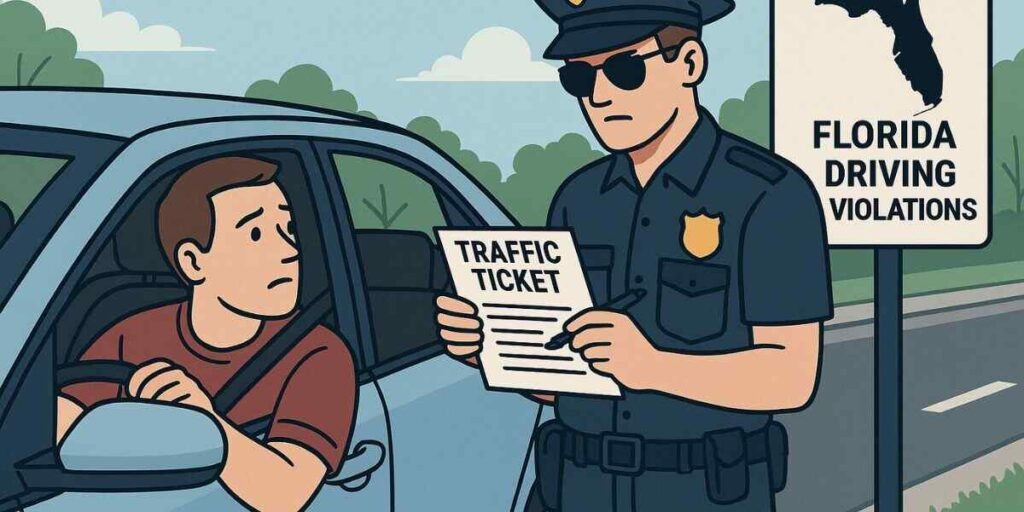Understanding 322.15 Florida law is essential for anyone navigating the legal landscape related to driving regulations in Florida. This statute outlines specific rules and requirements that impact drivers, including penalties for certain violations. Whether you are a new driver or have been licensed for years, knowing the details of this law can help you avoid legal troubles and maintain your driving privileges. This article will provide a clear and comprehensive overview of 322.15 Florida law, its purpose, key provisions, and how it affects individuals across the state. Stay informed to protect your rights and ensure compliance with Florida’s driving regulations.
What is 322.15 Florida Law?
322.15 Florida law is a specific statute within Florida’s traffic and motor vehicle regulations that addresses particular rules governing driver’s licenses and driving conduct. At its core, this law establishes guidelines related to license suspensions, restrictions, and reinstatements, ensuring that drivers adhere to safety standards mandated by the state. It is designed to promote responsible driving behavior and reduce traffic-related incidents by enforcing clear consequences for violations.
Understanding the exact scope of 322.15 Florida law is crucial for drivers, legal professionals, and law enforcement officers alike, as it directly influences how driving privileges are managed and protected. The statute plays a significant role in maintaining road safety and ensuring that drivers who fail to comply with regulations face appropriate penalties. In the following sections, we will explore the history, purpose, and detailed provisions of this law to provide a well-rounded understanding.
Historical Background of 322.15 Florida Law
The origins of 322.15 Florida law trace back to efforts by the state legislature to create a safer driving environment by regulating driver behavior and licensing requirements. Over the years, this law has undergone several revisions to keep pace with changing traffic conditions and advancements in vehicle technology. Initially, the statute focused primarily on straightforward penalties for unsafe driving, but subsequent amendments expanded its scope to include detailed processes for license suspension and reinstatement.
These changes reflect Florida’s ongoing commitment to reducing accidents and promoting accountability among drivers. The historical development of 322.15 Florida law reveals how legal frameworks evolve to address emerging public safety concerns. Understanding this background helps clarify why certain provisions exist today and how the law continues to adapt to ensure effective enforcement of driving standards across Florida.
The Purpose of 322.15 Florida Law
The primary purpose of 322.15 Florida law is to regulate driver licensing and ensure that individuals on Florida’s roads meet safety and legal standards. This statute serves to protect both drivers and pedestrians by establishing clear rules regarding driver qualifications, license suspensions, and reinstatements. By enforcing these standards, Florida aims to reduce traffic accidents, promote responsible driving, and maintain public safety. Below are the key objectives that this law seeks to accomplish:
Promoting Road Safety
One of the main goals of 322.15 Florida law is to enhance road safety across the state. By setting strict guidelines on who can legally operate a vehicle and under what conditions, the law helps minimize the risks caused by unqualified or irresponsible drivers. This directly contributes to lowering the rates of traffic-related injuries and fatalities.
Regulating License Suspensions and Reinstatements
This law clearly defines the circumstances under which a driver’s license may be suspended or revoked. It also outlines the process for reinstating driving privileges once the necessary requirements or penalties have been fulfilled. This ensures a fair and transparent system that balances enforcement with opportunities for drivers to regain their licenses.
Encouraging Responsible Driving Behavior
By imposing penalties and consequences for violations, 322.15 Florida law encourages drivers to follow traffic rules diligently. The law acts as a deterrent against dangerous behaviors such as reckless driving, driving under the influence, and other offenses that compromise safety on the roads.
Who is Affected by 322.15 Florida Law?
322.15 Florida law impacts a wide range of individuals and entities within the state, primarily focusing on drivers and vehicle owners. Understanding who is subject to this law is essential for compliance and avoiding legal consequences. This statute affects both residents and non-residents who operate vehicles within Florida’s jurisdiction. Below are the main groups influenced by this law:
Licensed Drivers in Florida
All individuals holding a valid Florida driver’s license are subject to the provisions of 322.15 Florida law. This includes new drivers, experienced motorists, and commercial vehicle operators. The law governs the conditions under which licenses can be suspended or revoked, as well as the procedures for reinstatement. Any driver who violates traffic regulations or fails to meet the legal requirements set by this statute risks penalties that can affect their driving privileges.
Out-of-State Drivers and Visitors
Non-residents driving in Florida are also impacted by 322.15 Florida law while operating a vehicle within the state. Although their home state may have different regulations, they must adhere to Florida’s traffic laws and licensing rules during their stay. Failure to comply can result in enforcement actions such as fines, citations, or even suspension of driving privileges within Florida. This ensures consistent application of road safety rules for all drivers on Florida roads.
Key Provisions of 322.15 Florida Law
322.15 Florida law contains several important provisions that regulate driver conduct and licensing procedures. One of the key elements is the criteria for suspension or revocation of a driver’s license, which can occur due to violations like driving under the influence, accumulating excessive points from traffic offenses, or failing to comply with court orders. The law also outlines the necessary steps for drivers to reinstate their licenses after suspension, including payment of fees, attending required courses, or submitting to medical evaluations if applicable.
322.15 Florida Law and Driving Regulations
322.15 Florida law plays a vital role in shaping the state’s driving regulations by setting clear standards for driver eligibility and conduct. It helps maintain order on Florida’s roads by outlining specific rules that drivers must follow. Here are some important aspects of how this law impacts driving regulations:
- License Suspension Criteria: The law specifies situations where a driver’s license can be suspended, such as repeated traffic violations, driving under the influence (DUI), or failure to pay fines.
- Reinstatement Requirements: Drivers must meet certain conditions to restore their license, including paying fees, completing defensive driving courses, or undergoing medical evaluations.
- Points System Enforcement: Accumulating points from various traffic offenses can trigger penalties under this law, leading to warnings or license suspensions.
- Restrictions on Commercial Drivers: The statute includes provisions that regulate commercial driver licenses (CDLs), ensuring those who operate large or hazardous vehicles comply with stricter safety standards.
- Coordination with Law Enforcement: The law provides guidance to police officers on how to enforce driving regulations related to license validity and violations.

Legal Consequences under 322.15 Florida Law
Understanding the legal consequences outlined in 322.15 Florida law is crucial for anyone operating a vehicle in the state. This statute clearly defines the penalties for violations, which are designed to enforce compliance and promote safe driving habits.
Fines and Monetary Penalties
One of the primary consequences under 322.15 Florida law includes fines that vary depending on the nature and severity of the violation. These monetary penalties serve both as a punishment and deterrent against unsafe driving practices. Failure to pay fines can lead to additional legal trouble, including extended license suspensions or even warrants for arrest.
License Suspension and Revocation
The law authorizes authorities to suspend or revoke a driver’s license for a range of infractions, such as DUI offenses, accumulating excessive points on the driving record, or failing to comply with court orders. Suspension periods may vary, but during this time, driving is prohibited. Revocation usually requires a longer waiting period and more stringent requirements for reinstatement.
Impact on Insurance and Driving Record
Violations under 322.15 Florida law can negatively affect a driver’s insurance premiums. Insurance companies often increase rates after certain offenses due to the higher risk. Additionally, these infractions remain on the driving record for several years, which can affect future employment opportunities and legal standing.
How to Comply with 322.15 Florida Law
Complying with 322.15 Florida law is essential for maintaining your driving privileges and ensuring safety on the roads. Here are key steps to follow to stay within the legal framework:
- Understand the Law: Familiarize yourself with the specific rules and regulations outlined in 322.15 Florida law, including license suspension criteria and reinstatement procedures.
- Maintain a Clean Driving Record: Avoid traffic violations by driving responsibly and adhering to speed limits, signals, and other traffic laws.
- Respond Promptly to Notices: If you receive any legal notices related to driving violations or license suspensions, address them immediately to avoid escalating penalties.
- Complete Required Courses: If mandated by the law, attend defensive driving or DUI education programs to qualify for license reinstatement.
- Pay Fines and Fees on Time: Ensure all fines and fees associated with violations or reinstatement are paid promptly to prevent additional sanctions.
- Communicate with Authorities: Stay in contact with the Florida Department of Highway Safety and Motor Vehicles (DHSMV) and comply with any requests or requirements they impose.

322.15 Florida Law in Traffic Violations
322.15 Florida law plays a significant role in addressing various traffic violations throughout the state. It specifically outlines the consequences for offenses such as reckless driving, speeding, driving under the influence (DUI), and failure to comply with traffic signals or signs. This law ensures that drivers who break these rules face appropriate penalties, which can include fines, points added to their driving record, or license suspensions.
By clearly defining these consequences, 322.15 Florida law acts as a deterrent against unsafe driving behavior and helps maintain order on Florida’s roads. The statute provides a legal framework that guides law enforcement officers in processing violations and ensures consistency in how traffic offenses are handled. Understanding how 322.15 Florida law applies to traffic violations is vital for drivers to avoid unexpected legal trouble and keep their driving privileges intact.
Enforcement of 322.15 Florida Law
Enforcement of 322.15 Florida law is critical to ensuring compliance and maintaining road safety throughout the state. Various authorities and agencies play key roles in implementing this statute effectively.
Role of Law Enforcement Officers
Police officers and highway patrol agents are the frontline enforcers of 322.15 Florida law. They are responsible for identifying violations, issuing citations, and taking immediate action such as license suspensions or vehicle impoundments when necessary. Their enforcement helps deter unsafe driving behaviors and uphold the legal standards set forth by the law.
Role of Florida DHSMV in Enforcing 322.15 Law
The DHSMV oversees administrative aspects related to 322.15 Florida law. This agency manages driver records, processes license suspensions and reinstatements, and ensures that penalties are properly applied. They also provide resources and guidance for drivers to understand their rights and responsibilities under the law.
Judicial System’s Role
Courts play an essential role in enforcing 322.15 Florida law by hearing cases related to driving violations and license disputes. Judges interpret the law, impose penalties, and determine the conditions for reinstatement or further sanctions. Their rulings ensure that enforcement remains fair and consistent across the state.
322.15 Florida Law and Driver’s License Suspensions
322.15 Florida law clearly defines the rules surrounding driver’s license suspensions. Understanding these points can help drivers avoid losing their driving privileges:
- Causes for Suspension: Violations such as DUI, reckless driving, failure to pay fines, and accumulating too many points can result in suspension under this law.
- Duration of Suspension: Suspension periods vary depending on the severity of the offense and whether it is a repeat violation. Some suspensions last for months, while others can be longer.
- Reinstatement Process: To reinstate a suspended license, drivers must often pay fees, complete required courses (such as defensive driving), and sometimes submit proof of insurance.
- Notification Requirements: The Florida Department of Highway Safety and Motor Vehicles (DHSMV) must notify drivers of suspension actions and their rights.
Defending Yourself Against Violations of 322.15 Florida Law
If you face allegations under 322.15 Florida law, it’s important to understand your options for defense. The law provides specific grounds on which drivers can challenge violations or penalties, often depending on the circumstances of the incident. One common defense is questioning the accuracy of evidence, such as breathalyzer results in DUI cases or errors in traffic citations. Another approach involves proving procedural mistakes made by law enforcement, like improper notification or failure to follow legal protocols.
Consulting with an experienced attorney can be crucial, as they can help identify valid defenses and represent you effectively in court. By being proactive and informed, drivers can potentially reduce fines, avoid license suspension, or even have charges dismissed. Knowing your rights under 322.15 Florida law ensures a fair legal process and better outcomes in challenging driving-related violations.
Recent Updates to 322.15 Florida Law
322.15 Florida law has seen several important updates in recent years aimed at improving road safety and clarifying enforcement procedures. These changes include adjustments to the points system, making it easier for drivers to understand how violations impact their licenses. Additionally, the law now incorporates stricter measures for repeat offenders, particularly in cases involving DUI or reckless driving, resulting in longer suspension periods and higher fines.
Recent amendments also focus on improving communication between the Florida Department of Highway Safety and Motor Vehicles (DHSMV) and drivers, ensuring timely notifications about license status and legal obligations. Furthermore, the updates have introduced more accessible options for license reinstatement, such as online courses and payment plans. Staying informed about these changes in 322.15 Florida law is essential for drivers to maintain compliance and protect their driving privileges.
Frequently Asked Questions about 322.15 Florida Law
Many drivers have questions about 322.15 Florida law due to its complex nature. Understanding common concerns can help individuals better navigate the legal system.
What Happens If My License is Suspended Under 322.15 Florida Law?
If your license is suspended under this law, you are legally prohibited from driving until the suspension period ends and you complete any required steps for reinstatement. Driving during suspension can lead to harsher penalties, including fines and possible jail time.
How Can I Reinstate My License After Suspension?
To reinstate your license, you typically need to pay all outstanding fines, complete mandated courses such as defensive driving or DUI education, and provide proof of insurance. The Florida Department of Highway Safety and Motor Vehicles (DHSMV) will guide you through the process based on your specific case.
Comparing 322.15 Florida Law with Other State Laws
When comparing 322.15 Florida law to similar statutes in other states, several distinctions become apparent. Florida’s law is notable for its detailed regulations surrounding license suspensions and reinstatements, particularly emphasizing strict enforcement for repeated offenses like DUI and reckless driving. Some states may have more lenient suspension durations or alternative penalties such as community service instead of fines. Additionally, Florida’s points system is closely monitored and often results in quicker suspensions compared to other states.
However, many states share common goals with Florida, focusing on public safety and driver accountability. Florida’s approach also integrates modernized processes, such as online services for reinstatement, which may not be as developed elsewhere. Overall, while the core objectives are similar nationwide, 322.15 Florida law reflects the state’s commitment to proactive enforcement and clear legal procedures to keep its roads safe.
Resources and Legal Help for 322.15 Florida Law Cases
Dealing with a case under 322.15 Florida law can be stressful, especially if you’re unfamiliar with legal procedures. Fortunately, there are trusted resources and legal professionals available to guide you through the process.
Where to Get Legal Assistance
If you’re facing license suspension, fines, or other consequences under this law, contacting a traffic or criminal defense attorney is a smart move. Look for lawyers experienced in Florida traffic laws, particularly license-related offenses. Many firms offer free initial consultations. You can also check with your local legal aid office for low-cost or free services if you qualify.
Useful Government and Legal Websites
Several official websites provide accurate and up-to-date information:
- Florida DHSMV: For license status, reinstatement steps, and traffic rules.
- Florida Bar Association: To find licensed attorneys by specialty and region.
- Florida Courts: For legal forms, court procedures, and contact information.






